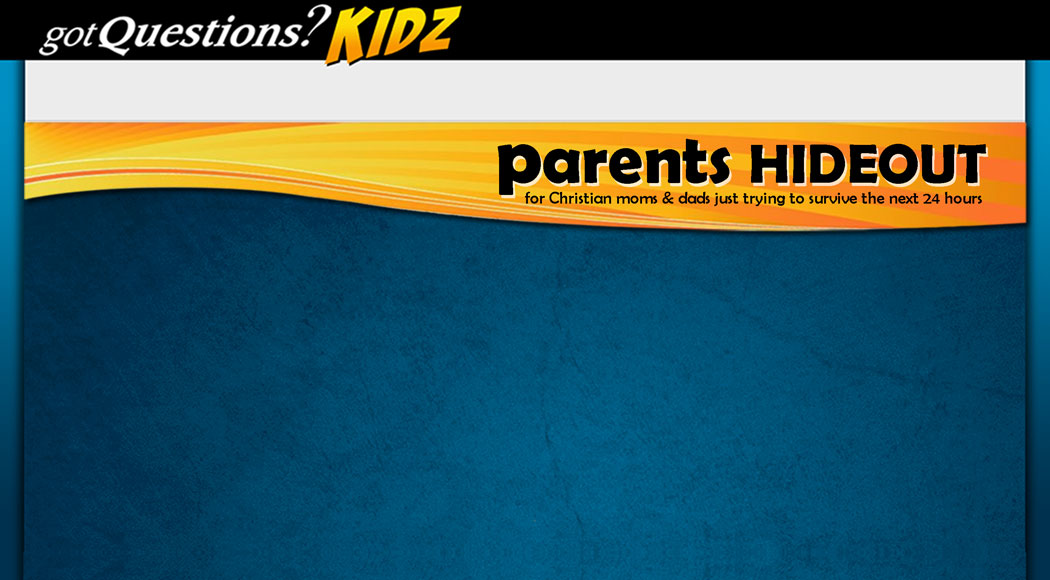
Temper, Temper
by Rebekah Largent
 If you’re a parent, you’ve probably been there. You’re on a shopping trip, and your child says sweetly, “Can I have ___________?” or less sweetly, "I want ___________!"
If you’re a parent, you’ve probably been there. You’re on a shopping trip, and your child says sweetly, “Can I have ___________?” or less sweetly, "I want ___________!"
Preoccupied with getting your errands done and getting back home, you absently respond, “Not this time, honey.” Little do you realize that you have just rocked your child’s tiny world. Her anger and frustration are now going to erupt like Mount Vesuvius. As you dismiss the thought and forget the question, you hear it. The sound. You turn around to see that she has melted down into a stomping, crying, screaming mess, right there in the aisle. In front of everyone.
For me, my first instinct is to look apologetically at the people around us, begging them to understand that my child isn’t normally like this. I want to yell to everyone in earshot, “I promise, I’m not a bad mom! She knows better than this. I swear I don’t buy her toys every time we go to the store!” My next instinct is to scoop up my inconsolable child, run from the building, and never return.
Personally, as the mom of a two-year-old, I’ve been through my share of temper tantrums. At home, we generally have a pretty good system that quells, corrects, or works through tantrums. It takes patience. It takes time. But let me tell you, when a meltdown happens in public, I forget all of that. Why? Because when my child has detonated, I’m sure that everyone is judging not only my parenting skills for that particular moment, but also my entire career as a mom.
One of the biggest, and most unexpected, things I’ve had to work on as a parent is to not care so much about what people think.
The sad truth is that there will always be people who will judge you—whether it’s on what you’re wearing, how you drive, how you talk, or your parenting techniques. They may or may not say anything. It might be a passive aggressive roll of the eyes or "tsk" in their breath. You may get dirty looks. Some people may think or say aloud, “Why can’t he/she control that child?” Some parents may give you a sympathetic expression, feeling your pain. Older parents may insist to themselves that their child never acted like that. (I’m convinced that they’ve just forgotten due to a severe case of parenting PTSD.)
When your child throws a royal fit, the reactions are going to run the gamut no matter how you handle it. Whatever happens, it’s how you choose to respond to their reactions that will make the difference. And whether or not you choose to internalize their judgments.
You can’t control people or their thoughts. You can only control you. If you’re ashamed of your child, not only will other people pick up on that, but your child will too. If you take people’s reactions—whether real or imagined—to heart, you will end up second-guessing yourself on a daily basis. And that’s not a good way to learn how to parent.
Don’t get me wrong—I’m not a proponent of completely ignoring a child's bad behavior. We do still need to be considerate to those around us. While my daughter has been in the throes of tears and agony at not getting her way, I have apologized to the people within earshot. I have even removed her from the location or situation in which she’s exploding at the unfairness of her little life. But my apologies are becoming less desperate, less threaded with guilt. I have become more willing to patiently help my daughter learn how to behave correctly in public places rather than just swooping her up in a panic and taking off running.
Yes, your child will embarrass you. That’s a given. Even if your child has never thrown a tantrum in his life, you’re still going to be caught red-faced when he streaks naked through the house in front of guests, burps during church, or loudly asks you, “Why does that old lady have blue hair?” Instead of wilting or retreating, and instead of dwelling on what other people might think, meet it head-on. You are the parent. You are in control of the situation. Deal with wrong behavior, but laugh at the rest. And of course, take pictures of those embarrassing moments so you can have your revenge when he’s a teenager.
So far, this whole parenting thing has been a trial-and-error, test-and-failure, embarrassment-and-triumph experience—but I’m learning more every day. Isn’t that what parenting is all about?
Rebekah Largent is a mom, a wife, and a writer/editor. After many years in the children's curriculum industry, she switched over to Internet ministry at Got Questions Ministries as a writer and editor. In addition to editing and writing articles for GotQuestions.org, she also manages the GQKidz.org website.
Illustration by Rafael Edwards.
comments powered by Disqus
- January 14: Cell Wars
- December 15: When Christmas is Sad
- November 24: Teaching Kids Thankfulness
- October 8: Kids and Chores
- August 11: Shootin' Hoops
- July 8: Children and Gender
- June 9: Live the Music
- May 12: Facing Temptation
- April 20: Boundaries in Fashion
- March 24: Underwear on the Kitchen Floor
- Feb. 16: Parent-Teacher Communication
- February 2: Kids and the Internet
- December 29: New Year's Goal
- December 1: Holiday Stress
- October 22: Boys Will Be Boys
- September 25: Managing a Large Family
- September 10: Teaching Children
Discernment - September 3: Growing Grama:
Dealing with the Heart - August 20: Learning to Love My
Preschooler - August 7: An Attitude of Gratitude
- July 29: Accentuate the Positive
- July 9: The Essay Train
- June 19: Discovering Dyslexia
- June 12: Picky Eaters
- May 28: Hope for the Future
- May 14: A Stay-at-Home Mom
- May 8: Becoming a Man
- April 9: Homework Wars
- April 3: The Life of One Working Mom
- March 5: Resolving Conflict
- January 30: God in the Everyday
- December 31: The Hunger Games
- December 12: Keeping It Real
- December 5: Curing the Gimmes
- November 27: Giving Thanks
- November 19: The Survival Guide to
Raising Girls - November 14: The Daily Download
- November 6: Bad Parenting Day
- October 30: Taking Back October 31st
- October 23: The History of GQKidz.org
- October 15: The Little Critics
- October 8: Temper, Temper
- October 1: Bullies and Tender Hearts
- September 24: Spontaneity & Schedules
- August 27: Keeping Preschoolers Busy
- August 13: Making Wise Media Choices
- August 13: Dirt Soup



